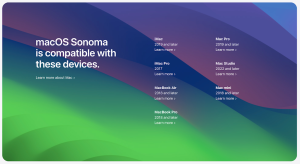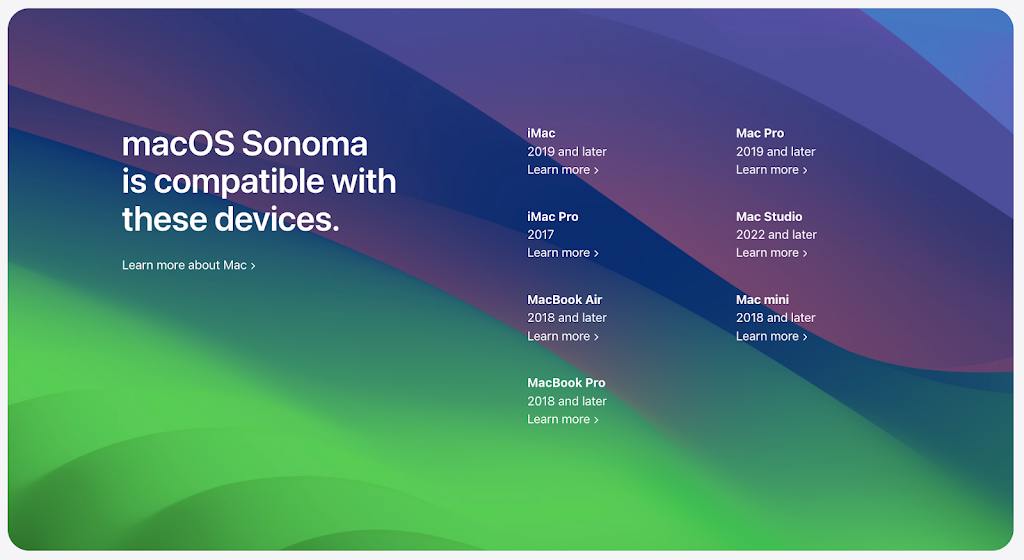I understand that you may be disappointed with the lack of significant new features in macOS Sonoma. It’s worth noting that software updates can vary in terms of the number and magnitude of changes introduced. While macOS Sonoma may not have brought a multitude of new features, it’s possible that it focused more on refining existing features, improving performance, and enhancing overall user experience.
macOS Sonoma is compatible with these computers:
What Macs does macOS Sonoma support?
– Mac 2019 and later
– Mac Pro 2019 and later
– iMac Pro 2017
– Mac Studio 2022 and later
– MacBook Air 2018 and later
– Mac mini 2018 and later
– MacBook Pro 2018 and later
Software updates are designed to address bugs, improve stability, and
introduce incremental improvements. While major feature updates are
exciting, sometimes subtle enhancements and optimizations can have a
significant impact on the overall functionality and performance of an
operating system.
If you have specific concerns or feedback
regarding macOS Sonoma or any other software, it can be helpful to share
your thoughts with the software developers or Apple’s support channels.
They appreciate user feedback and it can contribute to future
improvements in subsequent updates.

